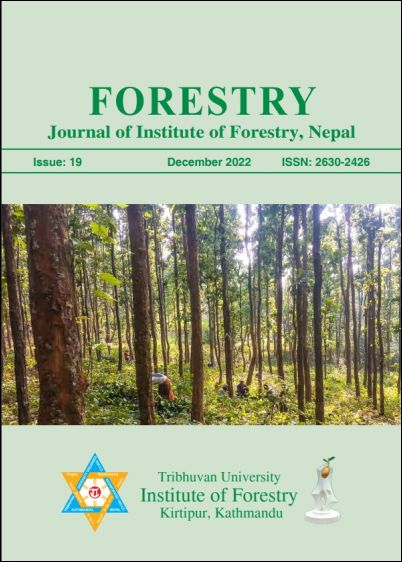Understanding the relationship between community forest user group and local government in changing federal context of Nepal
DOI:
https://doi.org/10.3126/forestry.v19i01.55708Keywords:
Community forest, federal system, governance, local government, revenue sharingAbstract
After the promulgation of a constitution of a federal democratic republican state in 2015, the federal government of Nepal has been restructured into an enlarged system of local government, resulting in a new interface between community forestry and the local government. We examined the community forest governance relationship with local government in the new federal system. This study is the outcome of policy reviews, interviews with stakeholders (n=120), and field observations in four different community forest user groups (CFUGs) within two provinces in Nepal, i.e., Bagmati and Gandaki.This study found that increasing interest from local government in resource management for environmental services, particularly for ecotourism infrastructure development, has increased positive collaboration between local government and CFUGs. However, controversial legal provisions and the organizational structure of forestry offices were found to be major barriers to better collaboration. More than 80% of the forest stakeholders favoured the increased role of local government in monitoring CFUGs; however, most forestry officials were reluctant to involve local government in forest-related activities. Benefit sharing with the local government has already been started in CFUGs; however, multiple tax provisions by local, provincial, and federal governments on CFUG funds have created conflicts among the stakeholders.
Downloads
Downloads
Published
How to Cite
Issue
Section
License
This license enables reusers to distribute, remix, adapt, and build upon the material in any medium or format, so long as attribution is given to the creator. The license allows for commercial use.




